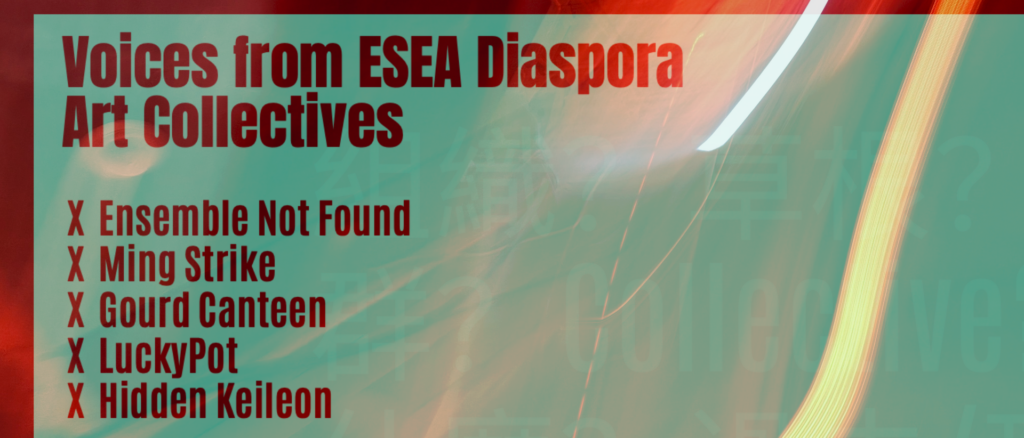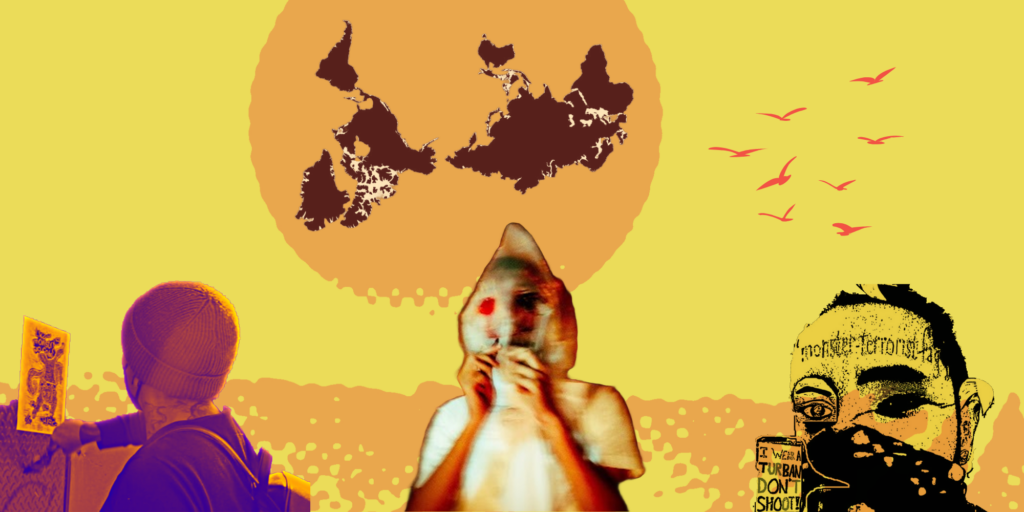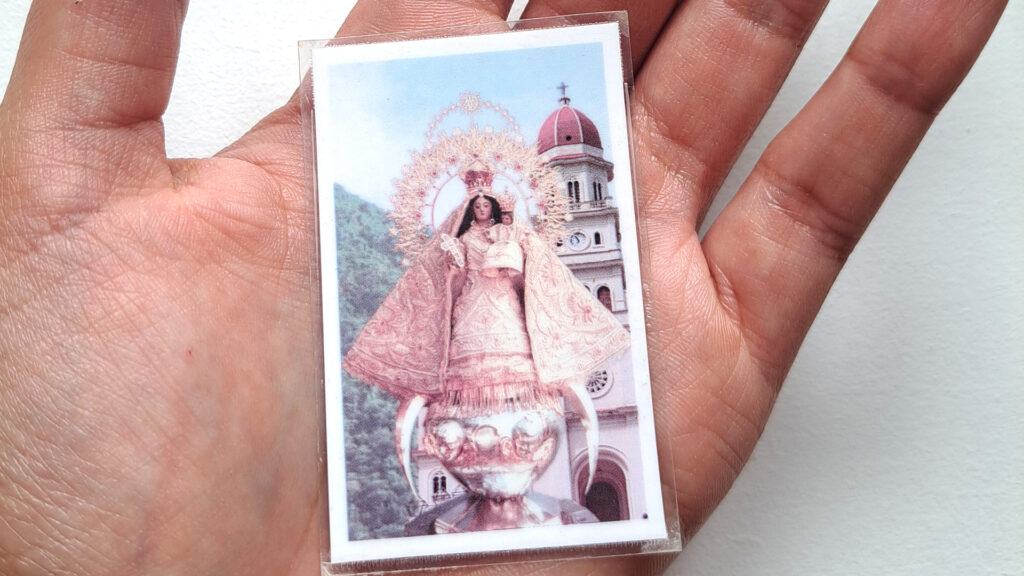we’re the ones we’ve been waiting for | an assembly by Party Office

Draft 01
Fadescha, March 2022
I am chirpy I survived.
We had all been pushed off to fall, Many fell, Many were blinded,
Many unable, as ability is what you make.
I am chirpy I survived.
They put a blanket on me, They fed me a pot of rice, They said they’d hold me.
I was brought to the set of movies, It’s home they said, I was provided for,
I was to share what I know, I shared what I remember, to as many.
They fed me.
I got lonely, I was not home, My heart was not on me.
My home is what fell, I was the only that remained.
They brought me as—
The last of us to know,
To be the last of us to tell.
Confused I wasn’t sure if it had been real,
There was nothing that could remind me, other than all that I had shared.
If I didn’t know if it’s real, was it even there?
INTRODUCTION
The autobiography of the only remaining witness to a genocide of their people is eventually called a false declaration. It’s then a challenge to the integrity of the generation, to stand up and demand the dismantling of the system, and to make sure that no one is left behind. Anarchism advocates a social transformation based on strategies that must allow for the substitution of a system of domination by a system of self-management. ‘I will never apologise to demand dignity for the living and the spirit of the dead. I will work towards abolition, by rejecting the assimilation that controls my body and my mind, I will unlearn, and I will produce new and radical archives.’
On 9 August 1956, around 50,000 women and children of every ethnicity presented themselves in a bodily protest at the Union Buildings in Pretoria against the ‘dompas’, laws that severely restricted the movements of Black South African and other racial groups by confining them to designated areas [ref]. In 1978 at the UN on the commemoration of this event, poet, activist, journalist June Jordan read ‘Poem for South African Women’. The title of this assembly is the last sentence of the poem.
‘And the babies cease alarm as mothers
raising arms
and heart high as the stars so far unseen
nevertheless hurl into the universe
a moving force
irreversible as light years
traveling to the open
eye
And who will join this standing up
and the ones who stood without sweet company
will sing and sing
back into the mountains and
if necessary
even under the sea
we are the ones we have been waiting for‘
— June Jordan, excerpt Poem for South African Women, 1978.
We stand with the power of our ancestral gifts, and in the hope that we make cherished elders.
Nida, 6 May 2024. Blue and I are sitting by the Baltic sea with Margot, a 4yr old, who earlier this week was disturbed by the loud sound caused by military testing of a radio tower of NATO. The first day we heard the sound we didn’t know where it was coming from, but today we sat at the part of the beach right beside this tower. I told Margot it was the police, to keep it simple. Margot started with a song addressing the police. They first asked them to keep the sound low, and then they asked them to not make the sound today as it was their papa’s birthday. And that the police should come and apologise to papa for this… and then screamed “Fuck the Police!”
we’re the ones we’ve been waiting for by Party Office is an assembly of artists who are forerunners of the story-telling of their people and histories. While in solidarity one cannot equate their positionality, but empathise, bear witness, translate and rage through personal potentialities.
— Party Office, 2024 (Fadescha)
Dream walks of a Haemodracon riebeckii, 2024.
SAJAN MANI
“സർ, ഞങ്ങൾക്ക് ഓർമ്മകളുടെ ചരിത്രമേ ഉള്ളൂ. അത് അപഹരിക്കപ്പെടാതെ കിടക്കുന്ന ഒരു വലിയ സമുദ്രമാണ് സർ” [“Sir, we only have the history of memories. It is a vast ocean that hasn’t been stolen, Sir.”]
— Eri, Dr.Pradeepan Pampirikunnu, DC Books, 2017
I had a dream. In the dream, I was a Haemodracon riebeckii. The specific name, riebeckii, is in honor of the German ethnologist Emil Riebeck (1853-1885). I was shocked to see a large number of photographs of my ancestors taken through the eugenic-gaze buried in the storage room of the Ethnographic Museum in Berlin. Here is where I came across this man’s name several times. In most of the photographs there was a physical scale to measure us. I tried to listen to the muted silences in those skins.
I looked for his graveyard and found it in Halle (Saale, Germany).
Sajan Mani, Dream walks of a Haemodracon riebeckii, 2024, Video 1’30”

In the dream, I’m at the graveyard. I am the poor lizard having a dream walk. I am lying near Riebeck and looking up. The sky is moving and the trees had a slight dance with the wind. Silence…
More than a hundred years later, a body from distant lands (savage) whose ancestors were measured, studied, and categorized for the science of that time accidentally appeared here… What is time, history, science, and ultimately, knowledge?
But I am just a lizard. I don’t know whether it is possible to articulate my dream as an Indigenous research methodology with respect, connecting the aspects of ontology, epistemology, and axiology. As Shawn Wilson (Wilson, Shawn, 2008) argued, our research is a life-changing ceremony. As a lizard, I will dream more and appear in your backyards, graveyards, and storage rooms, including your books.
References:
1. Eri, Dr.Pradeepan Pampirikunnu (2017) DC Books.
2. Wilson, Shawn. (2008). Research Is Ceremony: Indigenous Research Methods. Fernwood Publishing.
3. P. Sanal Mohan, Modernity of Slavery: Struggles Against Caste Inequality in Colonial Kerala (Oxford University Press, 2015.)
Labor, 2023.
BLUE PAUL FLEMING
Reading, 3’45”, at the exhibition Resonance Beyond Escape: Qworkaholics Anonymous III, curated by Party Office, at NAC of VAA, June 2024. Standing in front of a photograph by Rafiki.
[Text:
You see me, you assume servitude.
By now (in the history of you); your psyche & brain connections , chemistry & neuronal pathways are all constructed /
Grown / on this idea of labor you then think I owe you.
Labor ; you have been taught that my body was carved for / bred
& disciplined into offering.
Take my milk 1849, exhibit my sex 1801 & acquire my girls like fish market (1946). // Notes : (References to slave milk suppliers,second reference is to the exhibition of a live black vagina « Venus noire « during world exhibition, third reference is a personal reference to my mother’s story of being sold to rich tourists for sexual favours, by their parents.) //
Tell me again how my labor to assimilate & erase my accents, my Kreyol and my blackness / will be the key to finally earn your respect.
Tell me how striving for your intellectual elitism will grant me to finally witness the land my ancestor’s labor had you shackled them on your boats.
I forbid you to name me. I forbid you to name my own.
You will maintain the delusion of appearances while maintaining 46% of disrespect on my wages. Wages that inherently are designed to abuse my body.
You pass me, see through me & assume I am the waitress at your café.
You ask me to fold your clothes at the Karstadt and call me the nanny at the spielplatz.
You see me resting & believe I am robbing you.
You ask me in the elevator if I labored appropriately a German offspring.
You congratulate me for serving your race on my child’s skin even when if my black crotch labored it 81h.bcn
For my labor not to benefit solely you, I burn out my body & soul trying to upgrade my trauma responses to your desired level of entendement, I slap one more behavioural therapy course to the long list of your approved injunction to function.
Order To function in your terms means to fit the excel sheet you have paved for my existence & body.
My labor is survival; thrown into the game and too stubborn to conform. I, deformed. Error of nature born with two sexes.
Call me divergent, call me impaired while you ask me to repair the sutures you left open on my belly.
While you ask me to cuddle you and care for you and listen to you and desire you.
AND HOW ABOUT FUCK YOU.
BUT LITERALLY.
LET ME PUT MY BODY IN THE LABOR OF FUCKING YOU. LET ME EARN FROM YOUR OWN DESIGN and adapt my meat market to your very own currencies.
(with skyrocketing prices on the menu, I adapt to the currency of my meat market.) ]
6×6: The Graveyard Offering, 2024.
BLUE PAUL FLEMING
In the clandestine embrace of night, under the luminescent gaze of the moon, Vodou whispers secrets of desire, power, and revolution. This is a journey into the heart of Vodou, where sexuality is not a mere act but a sacred ritual, a powerful invocation of spirits, and an unapologetic assertion of identity. As a trans sex-worker-activist-poet, and journalist from Guadeloupe, I invite you to explore the hidden currents that flow through the rituals and resistance of Vodou.
— Blue Paul Fleming, ‘Sacred Intimacies: The Hidden Currents of Sexuality and Power in Vodou‘, July 2024.
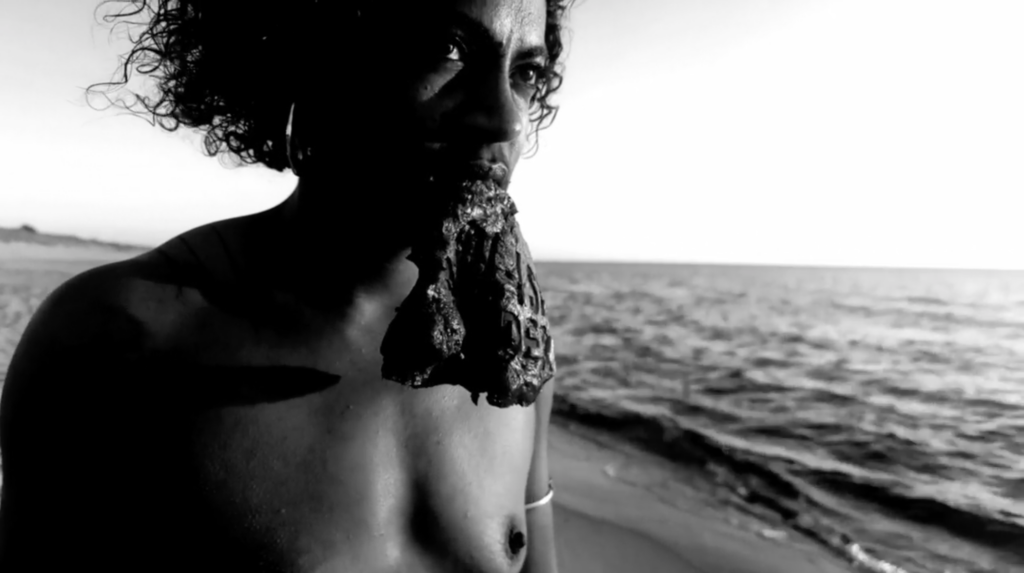

In my spiritual journey, I incarnate the Vodou spirit Erzulie Dantor, representing the aggressive, protective, and nurturing aspects of womanhood. As a dark-skinned woman with symbolic scars, Erzulie Dantor reflects the struggles of Black women and the fierce protection of their children. She is particularly venerated by single mothers and those seeking justice, invoked in rituals for protection, revenge, and strength
This incarnation marks my journey as a father, calling into vision the accountability of past and future fathers, regardless of their biological link to their offspring. It’s time to pay, to break generational cycles of trauma, to redefine binary and gender roles, to heal the consequent traumas, and to cleanse syncretism of its whiteness, Catholicism, and patriarchy.
Rooted in Afro-Caribbean heritage, I bring ancestral wisdom to my work, prioritizing safety and agency. With community organizing experience, I amplify marginalized voices, paving the way for transformative praxis. As a cultural scholar, I critically analyze prevailing narratives, positioning myself as a leader in projects like “Decolonizing Intimacy.” Committed to dismantling power structures, I stand at the forefront of creating a world that, while not perfectly just and equitable, is fiercely resistant to oppression. I am a warrior of our current political times.
My identity is deeply entwined with the heritage of creolité and métissage, embracing a multitude of languages and intersectional experiences. As a light-skinned mulatto, I navigate different racial and cultural realities. This complex identity rejects the binary, embracing fluidity and resistance. La Mulatresse Solitude, an emblematic figure of resistance in Guadeloupe, embodies this struggle for freedom and justice, symbolizing the strength and courage of Black women in their fight against colonial oppression.
In addition to verbal languages, I possess a complex catalog of non-verbal languages, allowing me to read, write, and define myself beyond words. My identity is also enriched by Taino and Arawak ancestry, adding layers of resilience and rebellion against colonial narratives.

In the latest installment of the ‘Sacred Intimacy’ series, Blue Paul Fleming, the modern-day genderfuck priest of rebellion, presents a visual and spiritual tour de force. Filmed against the vast, unbroken expanse of the Baltic Sea at the Russian border in Nida (2024) this work captures a transcendence spell between father and child, human or animal. The spell, ‘MAY MY WATERS BECOME THE GRAVEYARD OF EMPIRES,’ is laser engraved on the flesh, symbolizing a powerful act of ritual resistance. This piece embodies the essence of Vodou as a form of political activism, drawing on its historical roots and contemporary relevance to mobilize cultural heritage for social change. The boundless waters serve as a metaphor for a world without borders, where the power of syncretic rituals and spiritual activism challenges oppressive empires and celebrates the enduring fight for justice and equality. This video is a testament to the transformative and defiant spirit of Vodou, resonating with the ongoing struggle for liberation and identity in our fractured world.

حاضر حلال
[with regard to presence]
FEHRAS PUBLISHING PRACTICES

Spring 2023, in a small bookshop in Aleppo that was just founded, we meet Alaa Al-Sayyed, a lawyer and historical researcher. Since 2012, amid the backdrop of the civil war, Alaa has dedicated their life to collecting archives. During our visit, Alaa shared their concerns about the disappearance of literary and historical documents. As we discussed the Aleppo National Archives- Alaa’s digital platform for protecting this legacy by collecting and disseminating resources- we noticed their use of حاضر حلال ‘Hader Halal’, meaning ‘now/here is halal’.
This phrase opens a path for us to orient ourselves with regard to the presence.




We extend this phrase, born in Aleppo, to be understood and practiced from a global perspective. But whose ‘presence’ in a society with diverse identities, languages, and histories? With regard to what do we shape histories in times fraught with sorrow, fear, and pain? Acknowledging that recognition is a posteriori to cognition, how do we navigate this climate of censorship that targets the formation of a solidarity-based resistance; towards a transformative and vibrant collective memory?
At the heart of our endeavors with Hader Halal are the principles of dissemination as an act of resistance. We dissect the authority of History with the scalpel of forgetting, which is the lifeline to reclaiming space for new imaginaries. Particularly amidst systematic attempts to erase minorities’ memories and to disregard the multiplicity of narratives. The imperial weight of History inflicts extensive trauma and censors spaces necessary for contemplating different political identities and history-making. One gift of ‘Hader Halal’ is to empower individuals who have histories of suffering. By plowing our pain and cultivating it with solidarity, we can absolve the presence.



Archives hold memories of pain. As we navigate the complexities of our present reality and current atrocities, the use of archival material becomes more foundational. The enactment of publishing in its broadest sense helps us to advocate for horizontal solidarity. Our practice of Hader Halal begins with celebrating the publishing legacy of the Afro-Asian Solidarity Movement, LOTUS: Afro-Asian Writings. LOTUS exemplifies a post-imperial political imagination that effectively created a large-scale, transcontinental cultural project. We use this treasure trove to challenge existing power structures.
The collective examination of publishing archives generally and LOTUS in particular is not just about individual arguments. It is a dynamic process that embraces the diverse viewpoints and experiences of the groups involved. By looking at the material through a shared lens of knowledge and personal interests, new insights and interpretations can emerge, emphasizing the significance of ambiguity in understanding the past and the present.

LOTUS was first published in 1968 in Cairo by the Permanent Bureau of the Afro-Asian Writers Association, an entity of the Afro-Asian Peoples Solidarity Organization. LOTUS was a milestone outcome of several Afro-Asian Writers Association conferences (Tashkent 1958, Cairo 1962, Beirut 1967, New Delhi 1970, Alma Ata 1973). The journal published poetry, short stories, plays, cultural studies, book reviews, artworks, illustrations, resolutions, and documents of the Afro-Asian Writers Association meetings and conferences. It appeared separately in Arabic, English, and French. The magazine was initially published in Cairo, then it was relocated to Beirut in 1978 due to the Camp David Accords and again from Beirut to Tunis in 1983 because of the Israeli invasion of Lebanon. Starting from 1978, the English and French editions of LOTUS were printed in ‘Land of our brothers’ in East Germany.

Fehras Publishion Practices uncaptioned images detailed (in order of appearance):
FPP_02 Hader Halal; Vitrine of Dar Al-Watha’k Al-Warakiyah (House of Print Records) founded by Alaa Al-Sayyed in 2023. Fehras Publishing Practices, 2023.
FPP_03 Hader Halal; different publications by feminist authors; Egyptian journalist and translator Aminah Al-Said, Egyptian Islamic scholar Bint Al-Shatie and Iraqi poet Nazik Al-Malaika. Founded in Aleppo National Library. Fehras Publishing Practices, 2023.
FPP_04 Hader Halal; a historical cartography mapping Islamic kingdoms, 2ed edition, printed in Cairo 1916 at backdrop of the Great Arab Revolution (1916-1918) against the Ottoman Empire amidst the levant lands theater of WWI and Balfour Declarations to make Palestine a “National home for Jews” in 1917. Founded at Dar Al-Watha’k Al-Warakiyah (House of Printed Records). Fehras Publishing Practices, 2023.
FPP_05 Hader Halal; The Annual Book of Lectures held at Aleppo National Library, vol. no. 01, printed in 1952. Fehras Publishing Practices, 2023.
FPP_06 Hader Halal zine by Fehras Publishing Practices, published with D’EST / Post-Ost series, riso print, limited edition, Berlin, 2024.
FPP_07 Hader Halal; lecture performance, Vera List Center and Center for Human Rights & The Arts. Fehras Publishing Practices Studio c/o Flutgraben, Berlin, 2023.
FPP_13 Hader Halal; making the booklet. Fehras Publishing Practices Studio c/o Flutgraben, Berlin, 2023.
ABOUT THE AUTHORS
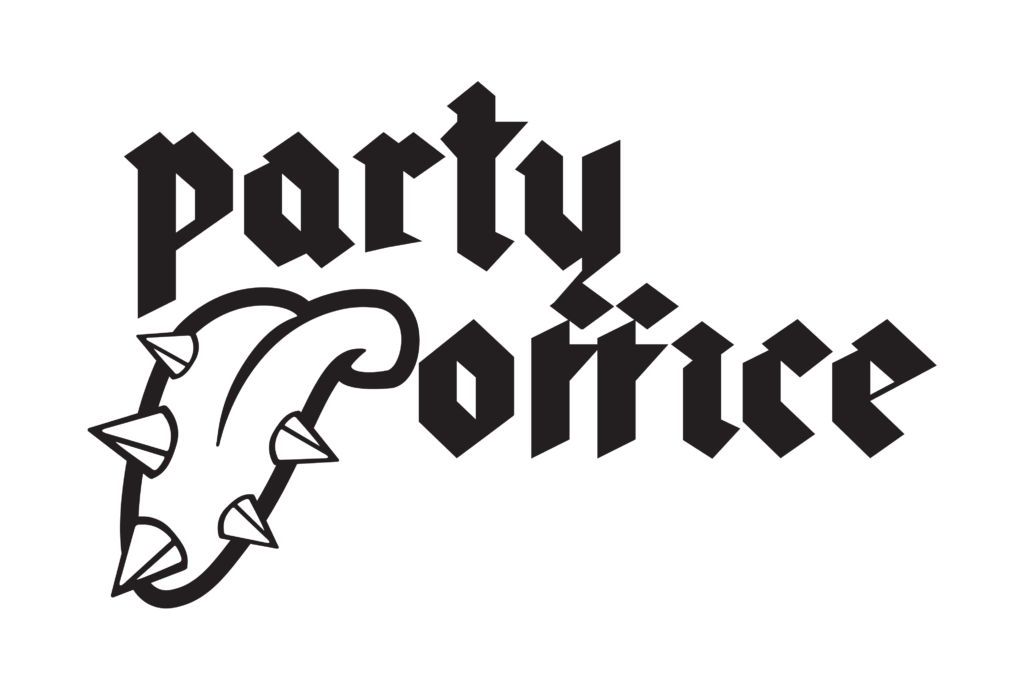
PARTY OFFICE is an anti-caste, anti-racist, trans-feminist, art and social space and time founded in New Delhi in 2020, which also manifests at satellite locations and as conceptual architecture. Through publications, grants, archives, conversations of life-lived, social gatherings, and more, they are building translation dialogues on empathetic futures, care community and radical agency. Party Office was founded and is directed by artist-curator Vidisha-Fadescha.
Party Office recently curated an exhibition Resonance Beyond Escape: Qworkaholics Anonymous III (June- October 2024, Nida Art Colony of Vilnius Academy) as a collective chant towards a Free Palestine. In 2023, Party Office exhibited at ZK/U Berlin, Rencontres d’Arles Discovery Award (Artist: Vishal Kumaraswamy), 4A Centre for Contemporary Asian Art in Sydney; curated film-screenings with The One Minutes (Amsterdam, Tokyo, Rotterdam.) Party Office b2b Fadescha were a lumbung artist at documenta fifteen, Kassel, 2022, where they presented Queer Time: Kinships & Architectures (curated by Vidisha-Fadescha & Shaunak Mahbubani), and curated the traveling exhibition Let no one mistake us for the fruit of Violence (2022–23, Dhaka, Kolkata, Pune & Chennai), they have worked with Cream Cake Berlin (2021), Collective Practices of Acud Macht Neu (2020-21), Nottingham Arts Mela (2020) and Paramatta Artists Studio, NSW, 2020.
Party Office publications include Towards a Dalit Structure of Archiving (2022, with anti-caste collective Samata Kala Manch), Consent of The Governed: Race, Constitution & Kink (2022, with performance and curatorial collective After Party Collective), Consent of The Governed: Gender, Constitution & Kink (2022, with performance and curatorial collective After Party Collective), Soil-to-Soil (2020, with urban kitchen The Millet Kitchen.)
partyoffice.xyz
Instagram
SAJAN MANI is an Interdisciplinary artist and curator hailing from a family of rubber tappers in a remote village in the northern part of Keralam, South India. His work voices the issues of marginalized and oppressed peoples of India, via the ‘Black Dalit body’ of the artist. Mani’s performance practice insists upon embodied presence, confronting pain, shame, fear, and power. His personal tryst with his body as a meeting point of history and present, opens onto ‘body’ as a socio-political metaphor.
Sajan Mani’s solo exhibitionExpedition Mani – Reverberations (2024), held at NOME Berlin, is an interim report of Mani’s artistic research. Through installations, videos, and drawings activated by his performance, Mani engages in an imaginary dialogue with his ancestors. He allows the contradictions of our present to reverberate under the weight of the colonial past. Wake up calls for my Ancestorsis a long-term critical artist-archivist project, of Sajan Mani, to give an active call to the muted voices of the Dalit and other archived subaltern subjects who are being appropriated, exhibited, accessed, edited and disseminated as mere photographs. Focussing particularly on the collection of South Indian photographs kept in the Ethnological Museum of Berlin, Sajan Mani has started an interdisciplinary dialogue inviting artists and researchers for a reflective critique on the Euro-centric archiving practices and a deliberative counter-moment to reject the exactitude of colonial photography.
sajanmani.com
Instagram
BLUE PAUL FLEMING I am Blue Paul Fleming, also known as Calypso Azra, a mutating object of desire from the scattered islands beyond the world’s waters. Born in Guadeloupe (Les Abymes) and raised in Saint-Martin (French and Dutch West Indies), my identity is a constellation of activist experiences, deeply rooted in the radical heritage of creolité and métissage. Intersex, queer, autistic, solo parent, trans, and light-skinned Black, I traverse these intersections with obsessive abolitionism, revolt, and decolonial unweaving in every facet within my grasp.
As a filmmaker, photographer, sex worker, poet, and essayist, I archive taboo intimacies focusing on transgressive bodies and euphoria. My work is a direct rebellion against the state’s oppressive power structures, challenging the suffocating norms of western, white, prude cultures. I delve into the depths of human experience, exposing the raw, unfiltered realities that society seeks to hide. Through the lens of autism, kink, sex work, critical whiteness, and allyship, I advocate for inclusivity and understanding, pushing boundaries and provoking thought.
Current creative journeys include “PRONOÏA,” a series of autobiographical hybrid porn short films questioning the prevailing gaze on marginalized bodies, identity, family, and transcendence. “6X6bySix” is a constellation festival, a radical community gathering led by and for Racialized Trans Queers. This festival is an explosive confrontation with the status quo, a declaration of war against systemic oppression. My project “Sixteen Hands” on May 16th fosters inclusivity and empowerment for Trans BIPOC sex workers.
lecursor.com
Instagram
FEHRAS PUBLISHING PRACTICES engages in various participatory methods and artistic productions, focusing on the relationship between publishing and history-making. It examines the role of publishing as a tool to combat cultural domination, as well as a means to foster solidarity and deconstruct colonial power. Fehras serves as an observatory for publishing strategies and practices in relation to the political and geographical transformations of southwest Asia and North Africa.
Our research primarily utilizes archival materials, including books, magazines, photographs, memoirs, letters, contemporary art publications (ephemera), and the libraries of authors, publishers, translators, and book vendors. We also draw from radio, television, cinema, and digital archives. We collect, organize, and re-curate these materials, placing them in diverse spatial and temporal contexts. We enact publications and reflect their sorties with various mediums. Our method of demarking boundaries in front of the audience is based on extensive cohabitation and sharing bread and salt, a practice we call Moasherat مُعاشِرات.
We uphold publishing as a means of creating, transferring, and disseminating knowledge. Consequently, we initiate projects in various forms, such as exhibitions, films, books, lectures, performances, and Moasherat. Our works address issues that concern us; gender, collectivity, identity, migration, emancipation, funding, and institutions.
fehraspublishingpractices.org
Instagram
Draft 02
Fadescha, March 2022You invite me to see you
I come all ready
I’m here to share what we need
I’m here to know what you need
I’ve been living this through
I’ve been learning this through
Not only me, but all who came before me
I put together the files
I present you with the possible
What we need
What language we speak
We don’t know of wily
We share what we have
You apologise, it was too late a file


